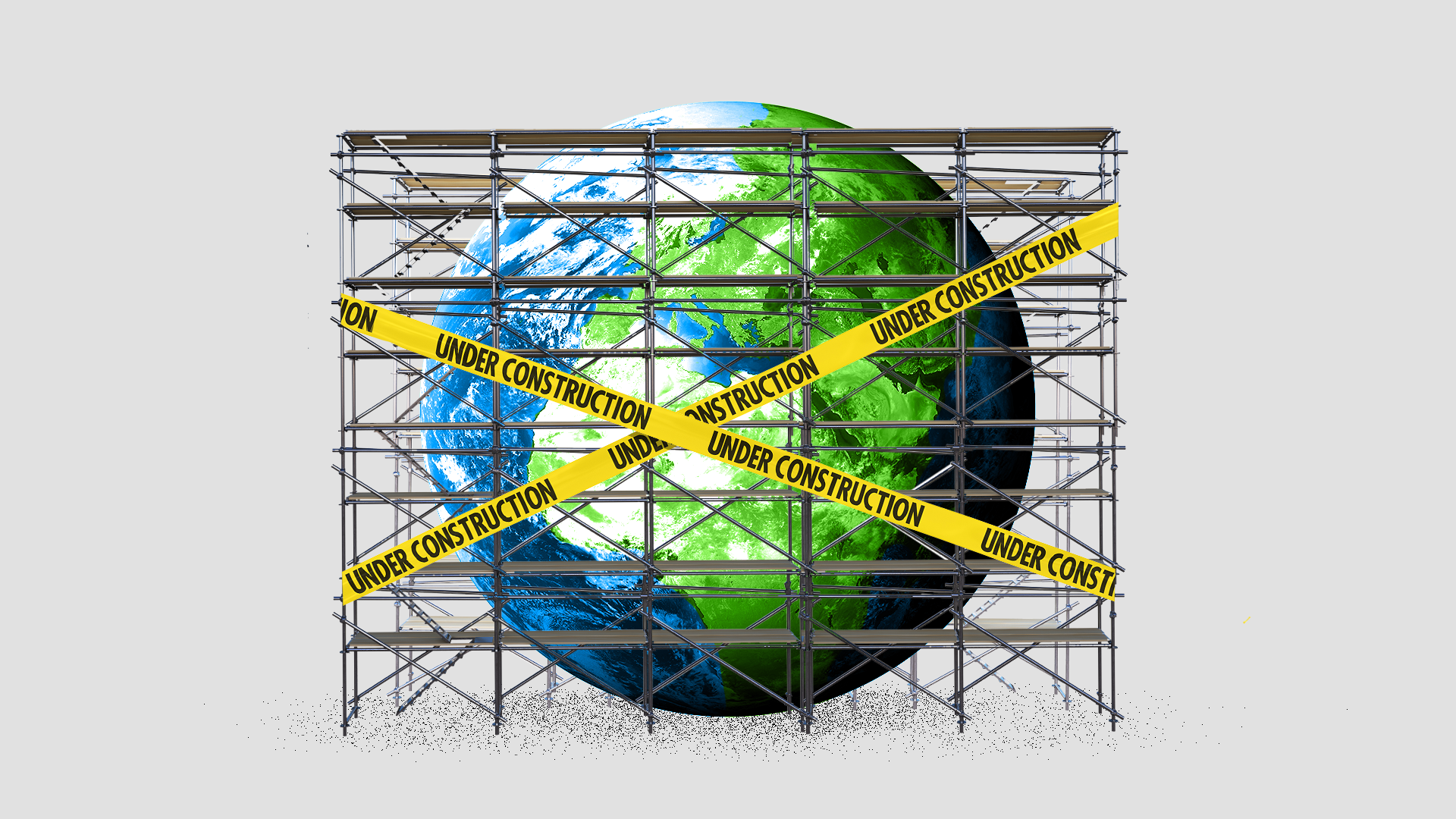Swamped: As domestic reform fails, world leaders take on the globe
Add Axios as your preferred source to
see more of our stories on Google.

Illustration: Aïda Amer/Axios
The change promised by the wave of leaders who rose to power around the world since President Trump's 2016 election often hasn't materialized, forcing them to make waves internationally instead of draining their respective swamps.
The big picture: It's not just Trump whose domestic agenda has stalled out. Both Brazilian President Jair Bolsonaro's far-right policies and French President Emmanuel Macron's technocratic centrism are struggling to move forward at home.
Trump's stalled domestic agenda pales in comparison to the portfolio of international issues he's inserted himself into or created: trade wars, confrontations with Iran and summits with North Korea, and a Middle East peace plan.
- The president doesn't face an oversight agenda when it comes to in-the-moment foreign policy, where he can rely on the personal, transactional style that he's favored throughout his business career to grab headlines with autocrats like North Korea's Kim Jong-un and Russia's Vladimir Putin.
Bolsonaro — dubbed the "Trump of the Tropics" for his sexist and homophobic statements — took office at the beginning of 2019, but he's already seeing difficult times ahead for his key domestic promise: $300 billion in pension reform.
- The head of the congressional committee for pension reform said last week that Bolsonaro's plan doesn't have 200 of the 308 votes needed to pass Congress' lower house.
- In the meantime, Bolsonaro has used his notoriety abroad to gain influence with Trump officials even as he leverages the White House's trade war with China to his own advantage — massively upping trade numbers, especially in soybeans.
Macron has seen his presidency marred by "yellow vest" protests across France, while simultaneously using his power on the world stage to attempt to prop up the European project he holds dear.
- His grand entrance onto the political stage — the presidency and a Parliament controlled by his brand new party — became bogged down in a months-long listening tour called the "Great National Debate" in an attempt to quell the "yellow vest" outrage.
- As a result, Macron promised a massive reform package that would, among other things, cut income taxes and reduce the size of France's oversized bureaucracy, giving up control of a large portion of his domestic agenda in the process.
- While unrest percolated at home, Macron turned his attention to shoring up the European Union — "going full de Gaulle," according to Foreign Policy's Robert Zaretsky — bringing himself close to German Chancellor Angela Merkel as bastions of centrism on the continent and using his position as a bully pulpit against the U.K.'s botched Brexit process.
The bottom line: Democracy is designed to be a deliberative, gradual process, and it's become even slower as political polarization takes root worldwide — so leaders are increasingly forced to turn outward to flex their muscles.
